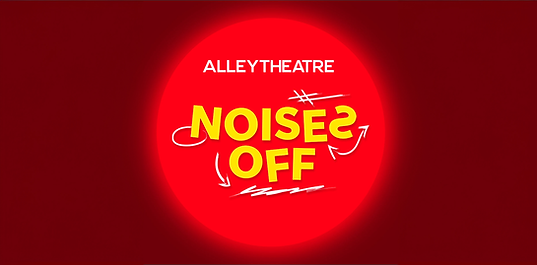


CAN YOU SOLVE THE ANAGRAM?

Click below to see the secret message and scroll down to explore more about The Da Vinci Code – secrets, history, and more puzzles.
Melissa Molano & Zack Fine. Photo by Melissa Taylor.
1. ABOUT THE PLAY
Join the thrilling adventure as symbologist Robert Langdon and cryptologist Sophie Neveu race to solve a puzzle that could change history. Following the clues hidden in ancient symbols and imagery, they uncover secrets that lead them on a dangerous quest.
Will they discover the truth? Or will the powers that lurk in the shadows prevail?
This play is adapted from the original book The Da Vinci Code by Dan Brown.

Zack Fine, Melissa Molano & Victor J. Flores. Photo by Melissa Taylor.
2. MEET THE AUTHORS
Rachel Wagstaff (co-adaptor) is a U.K.-based, award-winning playwright.


Dan Brown is the author of eight #1 bestselling novels, including The Da Vinci Code, which has become one of the bestselling books of all time. Brown’s novels are published in 56 languages worldwide, with over 250 million copies in print. In 2005, he was named one of the 100 Most Influential People in the World by TIME Magazine.
Click below to learn more about Dan Brown, explore his novels, and even solve some mysteries.

Use this activity for students to learn more about the author.
Duncan Abel (co-adaptor) is a U.K.-based playwright and author.
3. WHEN AND WHERE
The Da Vinci Code was published as a novel in 2003, and the play was first performed in 2021. The time listed on the first page of the script is 'Present Day,' so the story is incredibly adaptable.
Paris, France
French locations include the Louvre, a high security bank, Church of Saint-Sulpice, and a French chateau.
The Louvre is an art museum in France and one of the most famous museums in the world. It is perhaps most famous for housing da Vinci’s Mona Lisa.

Keep an Eye Out...
The Da Vinci Code takes place in so many locations that it's a challenge to show them all onstage. When you see the play, watch closely to see how all the different places are portrayed.
London, England
London locations include Temple Church and Westminster Abbey.
Westminster Abbey is the church where the kings and queens of England are crowned - and many famous people are buried.

4. GOOD TO KNOW
You might hear some words on stage that are unfamiliar to you. Look through the definitions below to prepare for when you hear them onstage.
5. WHO'S WHO
Read the descriptions below and click on each photo for the actor’s bio.
Robert Langdon- Harvard professor of symbology, loves puzzles and riddles, hates tight spaces, always wears his Mickey Mouse watch. He is cautious but deeply curious, reluctant to be involved in the dangerous quest but ultimately committed to helping Sophie.
Key Traits:
-
Trustworthy
-
Brilliant
-
Claustrophobic
Zach Fine
Robert Langdon
Sophie Neveu- A skilled cryptographer for the French police judiciary and granddaughter of Jacques Saunière. Intelligent, determined, and emotionally complex, Sophie is driven by a desire to uncover the truth about her family and protect the secret left by her grandfather.
Key Traits:
-
Smart
-
Compassionate
-
Quick on her feet
Melissa Molano*
Sophie Neveu
*Resident Acting Company Member
Use this activity to explore the characters more deeply.
6. INSIDE THE LOUVRE
The Louvre’s website offers several self-guided suggested tours that include pictures and explanations for virtual visitors. Use the link below to choose one of the ‘Visitor Trails’ to follow and see where it takes you. You may even find some pieces mentioned in The Da Vinci Code along the way.
(You may do this as a class or have it as a student-guided individual/small group activity)
Reflect: After you do some exploring, have a group discussion:
-
What was your favorite artwork that you saw? Why? How did it make you feel?
-
Think about one of the ‘trails’ you followed. Did the way it was set up help you understand the story the museum is trying to tell? Why or why not?


If you just want to explore the Louvre for artworks mentioned in The Da Vinci Code, here is a list of all artists and titles found in the play.
8. YOUR PART IN THE PLAY
The show can't happen without an audience. Watch the video for some great advice on playing your part.
BONUS ACTIVITY
AUDIENCE ETIQUETTE
After watching the video, improvise scenes where you encounter the best and worst audience members. If you create something fun and want to share it, tag us at @alleytheatre on Instagram or Facebook for a chance to be featured on our social platforms.

9. POST-SHOW TALKBACK
If you and your students plan to participate in the post-show talkback, encourage them to ask questions!


















